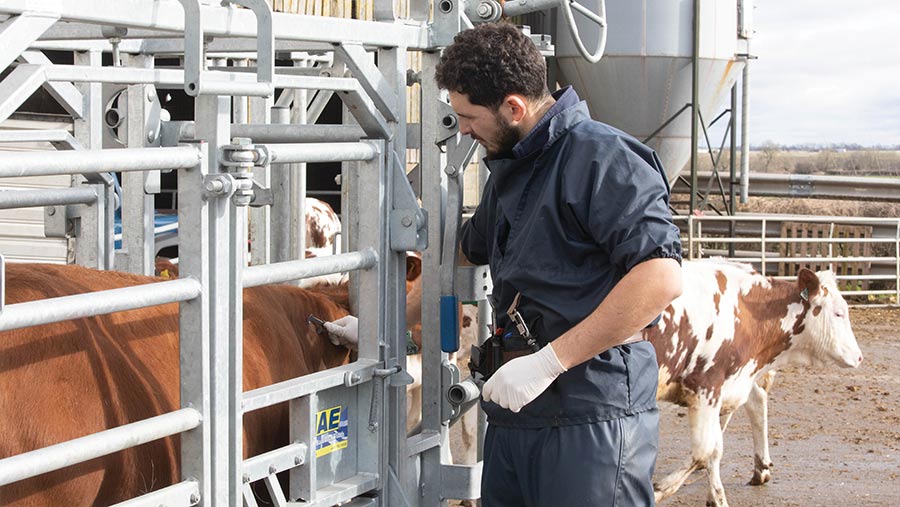New TB rules mean less red tape to move restricted cattle
 © Tim Scrivener
© Tim Scrivener Livestock movements during a bovine TB breakdown can be made using a single general licence from 2 October 2023, replacing the need for individual movement licences.
The rule change, described as a “win-win” by NFU Cymru, will allow a general licence to be used to move TB-restricted cattle either directly or via an approved, dedicated “orange market” in Wales or England, to an approved finishing unit (AFU) or a slaughterhouse.
In England, it will also apply to an approved finishing unit (enhanced) with grazing.
See also: Cattle farmers reminded of changes to licensed TB unit rules
Businesses subject to TB restrictions currently have to apply to the Animal and Plant Health Agency (Apha) in advance every time they want to move cattle to an AFU or another licensed unit.
NFU Cymru had lobbied the Welsh government for the change to simplify the process for farmers and to ease Apha’s workload.
Its TB Focus Group chairman, Pembrokeshire dairy farmer Roger Lewis, said the new system was “extremely welcome news” and would “make a real difference” to farmers across Wales who are operating their businesses under TB restrictions.
“The new general licence is absolutely win-win; it will reduce the red tape associated with moving animals, especially calves and youngstock, off the farm during a TB breakdown without compromising disease control,” he said.
Under the existing system, farmers can experience delays in having individual licences for each animal processed.
Mr Lewis said this often led to farmers missing slots for getting animals into biosecure outlets.
The new general licence, known as licence TB16e, will be valid for the period between short-interval tests. Farmers will need to apply to Apha for a new licence after each short-interval test.
In the year up to June 2023, 608 cattle herds – 5.3% of the national herd – were not officially TB free due to a bovine TB incident – an increase of 1.2% on the previous 12 months.
